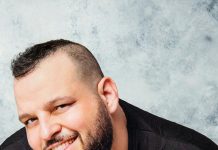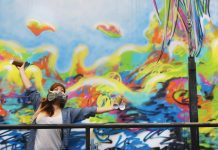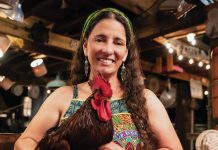Why do we fall in love? How do we fall out of love?
Fueled by a divorce and multiple failed relationships, biologist Dawn Maslar spent more than five years studying the neuroscience of love. Her quest began in 2003 following the end of her marriage.
The 51-year-old Davie resident’s career blossomed. She found a job teaching biology at Broward College and later at Nova Southeastern University, but her love life was in tatters.
To help heal her heartbreak, Maslar began journaling. That’s when a light came on. “I realized the common denominator was me. I needed to do work on myself,” she explains.
The lessons learned from her logs led to Maslar’s first book, From Heartbreak to Heart’s Desire: Developing a Healthy GPS (Guy Picking System), in 2010.
Next, she joined a local women’s group, where she learned how common it is for women to choose the “wrong men.”
The biologist in Maslar wanted concrete answers. She holds a master’s of science in environmental management and an additional 18 credit hours of graduate work in biology from the University of Maryland University College.
Using the library at Nova, Maslar researched the neuroscience of love. In other words, how does love work? Slowly, she connected the dots from the more than 200 studies used in her book. Some of that data came from studies conducted by the U.S. Air Force that were followed up and expanded on by Harvard University.
The studies explored how the brain works—or doesn’t—when we fall in love; how our senses guide us in picking a mate; what part hormones play; and the biggie: Is long-term love possible?
Maslar’s personal life improved drastically once she understood how biology influences the choices we make when selecting partners. Today she is in a happy, committed relationship. “I looked for characteristics of people I wanted to meet, not necessarily how they made me feel. I realized that attraction had nothing to do with love,” she says. “Later the love can grow.”
Unexpectedly, her newfound knowledge also resulted in a new career.
Now she holds seminars teaching others how human biology affects love. Maslar presents her knowledge with interactive shows to prove that attraction is based on our senses and our brains. In one experiment, she has a small group of people on the stage. A blindfolded male or female smells the hair of three people to show how smell influences attraction.
Want to catch the love guru in action? On March 23, she is teaching “The Science of Attraction” at NSU’s Lifelong Learning Institute. She is discussing her second book, Men Chase, Women Choose: The Neuroscience of Meeting, Dating, Losing Your Mind, and Finding True Love, on March 25 at Barnes & Noble in Fort Lauderdale. And on April 18, Maslar is conducting an interactive show, “The Great Love Experiment,” at Broward College, North Campus.












Facebook Comments